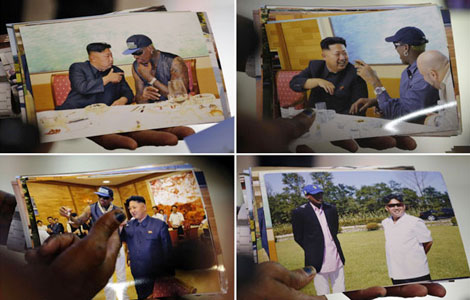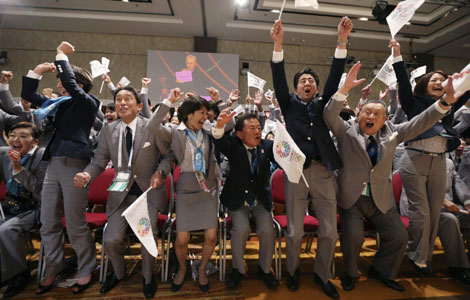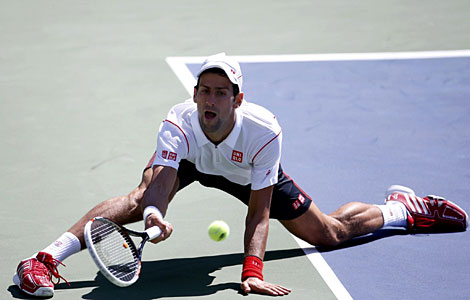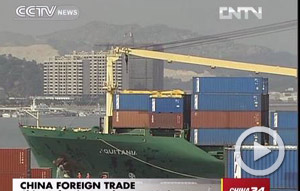No stopping daylight by killing roosters
Updated: 2013-09-09 07:04
By Zhang Zhihai (China Daily)
|
||||||||
The dawning of the new media age means officials need better interaction with the media and the public. However, despite the principle of "maintaining good relations with and making good use of the media" put forward by the Party and the government, many officials still have deep-rooted misapprehension about the media. It is necessary to correct this so they can interact better.
In some cities or provinces, officials consider so-called negative publicity as something evil. Whenever there is any report of bad news within their region, the first thing that comes to their minds is how to prevent it from spreading. To that purpose they employ all kinds of resources, use personal influence, even administrative resources, to intervene to try and stop the news spreading.
This is wrong. China's media outlets, especially the mainstream ones, play the role of recording social progress, expressing public opinion and supervising power for social justice in the nation's development process. By seeking to curb or control bad news, the officials actually ignore public opinion. That in the long run will make it impossible for the government and the media to treat each other with sincerity.
Some officials also use improper words when dealing with the media. They forget that the media have audiences and treat interviews as a private discussion, thus they often speak without taking public opinion into consideration. They do not realize that their ridiculous words will make the headlines. The strange words of officials, which have shocked the public and aroused national concern in recent years, are good examples. To change this, officials must change their views of the media. They should view the media as a means of rallying public support rather than a way to impose their views on the public.
Many officials treat their relations with the media in an outdated propaganda mode. They take the media as a means to boast of their achievements and try to impose their own will upon the media. That might have been appropriate decades ago, but now we are in the new media age when everybody can be a journalist; such simple thinking in dealing with the media, instead of gaining public trust, makes officials look foolish. The new media age requires officials to embrace the media with more openness; even if they want to use the media to express their views, they need to know the art of modern journalism and learn to interact with the public better.
When their mistakes are pointed out by the media many officials, even government agencies, respond by blaming the media first, without thinking about their own mistakes. Some powerful officials have even punished reporters for inaccurate information about negative facts. Actually, negative publicity, especially that involving the authorities is more difficult as it often meets resistance from those involved. What officials should do is to be tolerant and correct their own mistakes if there are any, instead of being querulous.
The last, but also very common mistake of officials is displaying an ostrich mentality trying to delete bad news through public relation measures. When bad things happen and get covered, it is quite common for officials to contact the media to get the information deleted. Such deeds are indescribably foolish: they think that they can prevent daylight coming by killing the rooster. In countless examples, efforts to delete negative information only lead to more social concern and finally to bigger social events, especially after the officials' PR efforts are revealed. This should be a lesson to officials.
In this new media age, the government and its officials should be extremely careful about publicity, especially when emergencies or negative incidents happen, because any improper words and deeds will be amplified and cause unimaginable results. Many local governments have realized this and they have set up professional agencies to research public opinion; this trend is welcome and we hope they can do a more professional job in having dialogue with the public.
However, the ultimate solution is for officials to do a better job. In other words they need to respect the people and really have their interests at heart, only with better service to the people will proper publicity help regain public trust.
The author is a researcher from the Shanghai Party School. The Chinese version of this story first appeared on Study Times.
(China Daily USA 09/09/2013 page11)

 US: Proven link of Assad to gas attack lacking
US: Proven link of Assad to gas attack lacking
 Serena Williams repeats as US Open champion
Serena Williams repeats as US Open champion
 Panda 'Bai Yun' celebrates 22nd birthday in US
Panda 'Bai Yun' celebrates 22nd birthday in US
 Exports expand in Aug amid signs of recovery
Exports expand in Aug amid signs of recovery
 Rodman back from DPRK without jailed American
Rodman back from DPRK without jailed American
 National Games: Pictures of the day
National Games: Pictures of the day
 Abe speech helps secure 2020 Games for Tokyo
Abe speech helps secure 2020 Games for Tokyo
 Djokovic, Nadal set up blockbuster US Open final
Djokovic, Nadal set up blockbuster US Open final
Most Viewed
Editor's Picks

|

|

|

|

|

|
Today's Top News
DPRK leader has a baby daughter: Rodman
US: Proven link of Assad to gas attack lacking
Li: China pursues sustainable growth
Trending news across China
China-US military ties deepen
Inflation slows to 2.6% in August
Chinese president arrives in Uzbekistan for visit
Hanas seeks gas partners in US
US Weekly

|

|






